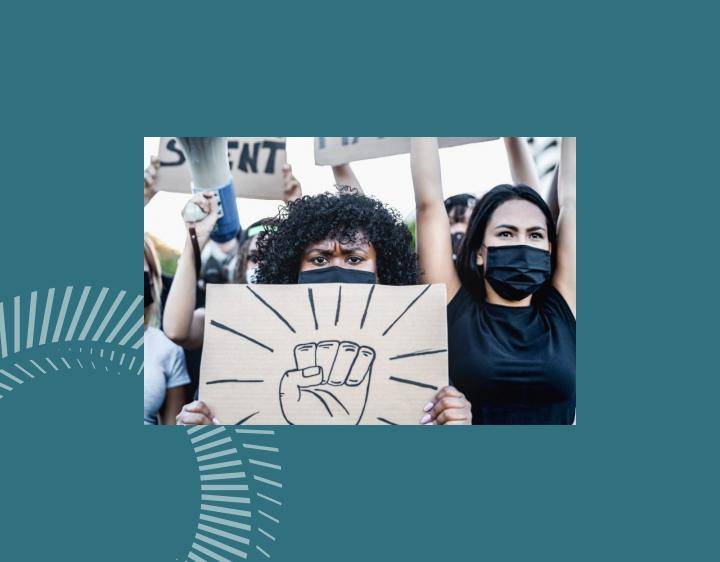
If the last few months have shown us anything, it is that the role of companies in addressing social and environmental issues is now an accepted – even expected – part of running a business. Whatever we might feel about it, private companies are now routinely scrutinised on their position and approach to major social and environmental issues such as gender, COVID-19, climate change and most recently minority rights and race.
The death of George Floyd in Minneapolis at the end of May catalysed a global protest focused on incidents of police brutality against minority and particularly black minority communities. This campaign has subsequently expanded to consider the rights of Black Asian and Minority Ethnic (BAME) communities more generally.
This has prompted consideration of the role of the financial community in addressing racial diversity1. The sector itself has a poor track-record on diversity in all its guises, but particularly on racial diversity2. Some institutions have moved to increase diversity. BlackRock Inc., for example, has committed to increase its Black workforce by 30% by 2024 and double the proportion of senior leaders who are Black from the current 3% level. Fiona Reynolds, the chief executive officer of the London-based Principles for Responsible Investment (PRI), has argued that the financial sector needs to do better itself in supporting racial diversity3.
For asset managers like WHEB the issue has three main dimensions. The first two embody how we address racial diversity in our interactions with companies that we invest in, and the third focuses on how WHEB itself addresses the issue in our own business.
Diversity in product impact – WHEB’s Impact Engine
As clients will hopefully know, WHEB’s investment philosophy is squarely focused on companies that supply products and services that deliver clear positive social and environmental impact. At the heart of our investment process is our ‘impact engine’ that is designed to capture the multi-dimensional nature of this positive impact. One of these dimensions involves an assessment of who the customers are for the company’s products and services and how vulnerable or under-served they are. Healthcare products that are explicitly aimed at the elderly or young, for example, score more highly on this dimension than interventions that are undifferentiated and address the whole population.
Similarly, there is a clear focus on products and services that address underserved populations. For example, healthcare insurance businesses or providers of tertiary education that disproportionately benefit disadvantaged communities, including Black, Asian and minority ethnic communities are scored more highly than businesses that are focused on already well-served communities.
Centene, a US-based managed healthcare provider, is explicitly focused on providing healthcare insurance to poorer and underserved communities and therefore their services disproportionately benefit the African-American community in the US. Similarly, the WHEB strategy is invested in two tertiary education providers that also support underserved communities. One of the more recent investments in the strategy is in the US-based tertiary education provider Strategic Education. Strategic’s programmes are focused in particular on people who did not have the opportunity or financial means to continue their education after high-school. The majority of students are working adults who are returning to education in order to improve their career opportunities. 76% of students are female and 64% are people of colour4. The company also has a particular focus in providing support to Historically Black Colleges and Universities (HBCUs) in developing on-line education capabilities.
Diversity within investee companies
In recent years, WHEB has made diversity, and particularly gender diversity, a priority engagement issue with portfolio companies. There is evidence that addressing gender diversity also benefits other diverse groups as well5. However, it is clear from these engagements that many portfolio businesses consider the issue of diversity to extend well beyond gender to include other aspects of diversity including ethnic diversity as well as diversity of experience and culture. Two holdings, TE Connectivity and STERIS, both argued in recent exchanges that the composition of their Boards had been designed explicitly to address this wider definition of diversity. Both claim to have Boards of Directors that are more than 50% ‘diverse’. We will ensure that our engagement with portfolio companies addresses diversity in all its manifestations as a core objective.
WHEB and diversity
Like most of the UK’s financial services sector, WHEB still has work to do to address gender and racial diversity in our own business and operations. Fundamentally we embrace diversity, inclusion and equality as a core value. We also recognise that a business culture that allows minority groups to flourish is likely to be more successful over the long run. Our understanding of these issues has improved in recent years and is evident in the approach and composition of our employees and within our advisory bodies6. We remain committed to fostering further diversity throughout our direct operations as we continue to grow.
WHEB also remains very active in supporting greater diversity more broadly through our internship programme and participation in wider industry initiatives. For example, for the past five years we have worked with the Social Mobility Foundation7 offering short internships to young men and women from diverse ethnic backgrounds to work at WHEB.
WHEB is also a founding corporate partner of City Hive which is an independent organisation working to create a more diverse, equitable and inclusive corporate culture within the investment management industry8. We know we don’t have all the answers. We are committed to educating ourselves through listening and working with City Hive and with the wider B Corporation network to identify ways that we can play a more proactive role in supporting diversity across all of our activities.
2 https://www.fnlondon.com/articles/black-lives-matter-finance-20200629
4 Strategic Education
5 Perse. Comm. Bev Shah
6 Including for example on WHEB’s independent Investment Advisory Committee
